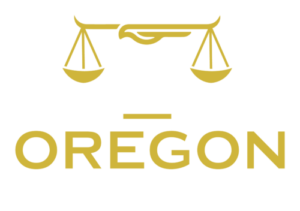ORCP 23 – Amended and Supplemental Pleadings
A Amendments. A pleading may be amended by a party once as a matter of course at any time before a responsive pleading is served or, if the pleading is one to which no responsive pleading is permitted, the party may so amend it at any time within 20 days after it is served. Otherwise a party may amend the pleading only by leave of court or by written consent of the adverse party; and leave shall be freely given when justice so requires. Whenever an amended pleading is filed, it shall be served upon all parties who are not in default, but as to all parties who are in default or against whom a default previously has been entered, judgment may be rendered in accordance with the prayer of the original pleading served upon them; and neither the amended pleading nor the process thereon need be served upon such parties in default unless the amended pleading asks for additional relief against the parties in default.
B Amendments to conform to the evidence. When issues not raised by the pleadings are tried by express or implied consent of the parties, they shall be treated in all respects as if they had been raised in the pleadings. Such amendment of the pleadings as may be necessary to cause them to conform to the evidence and to raise these issues may be made upon motion of any party at any time, even after judgment; but failure so to amend does not affect the result of the trial of these issues. If evidence is objected to at the trial on the ground that it is not within the issues made by the pleadings, the court may allow the pleadings to be amended when the presentation of the merits of the action will be subserved thereby and the objecting party fails to satisfy the court that the admission of such evidence would prejudice such party in maintaining an action or defense upon the merits. The court may grant a continuance to enable the objecting party to meet such evidence.
C Relation back of amendments. Whenever the claim or defense asserted in the amended pleading arose out of the conduct, transaction, or occurrence set forth or attempted to be set forth in the original pleading, the amendment relates back to the date of the original pleading. An amendment changing the party against whom a claim is asserted relates back if the foregoing provision is satisfied and, within the period provided by law for commencing the action against the party to be brought in by amendment, such party (1) has received such notice of the institution of the action that the party will not be prejudiced in maintaining any defense on the merits, and (2) knew or should have known that, but for a mistake concerning the identity of the proper party, the action would have been brought against the party brought in by amendment.
D How amendment made. When any pleading is amended before trial, mere clerical errors excepted, it shall be done by filing a new pleading, to be called the amended pleading, or by interlineation, deletion, or otherwise. Such amended pleading shall be complete in itself, without reference to the original or any preceding amended one.
E Supplemental pleadings. Upon motion of a party the court may, upon reasonable notice and upon such terms as are just, permit the party to serve a supplemental pleading setting forth transactions or occurrences or events which have happened since the date of the pleading sought to be supplemented. Permission may be granted even though the original pleading is defective in its statement of a claim for relief or defense. If the court deems it advisable that the adverse party plead to the supplemental pleading, it shall so order, specifying the time therefor.
[CCP 12/2/78; §§B,D,E,F,G amended by CCP 12/13/80]
